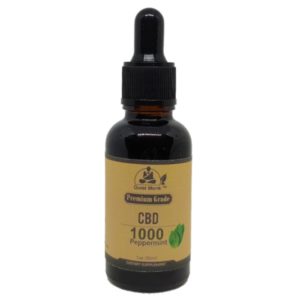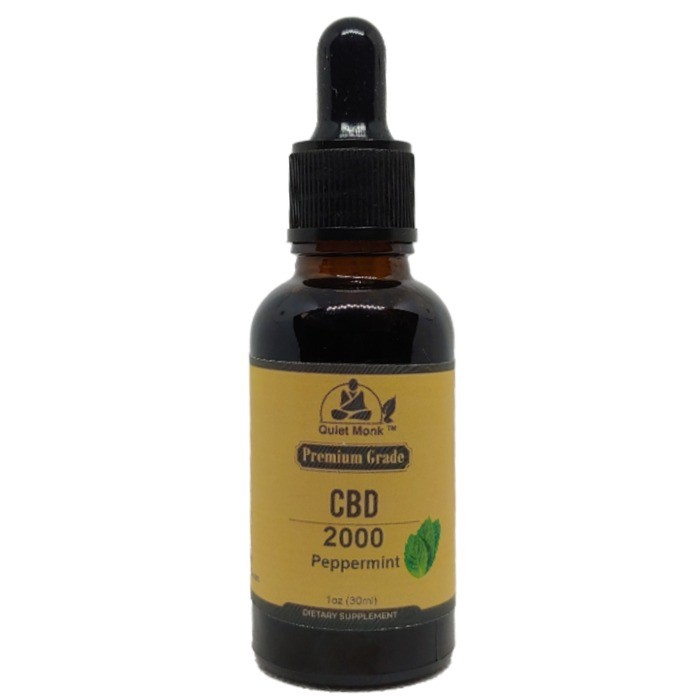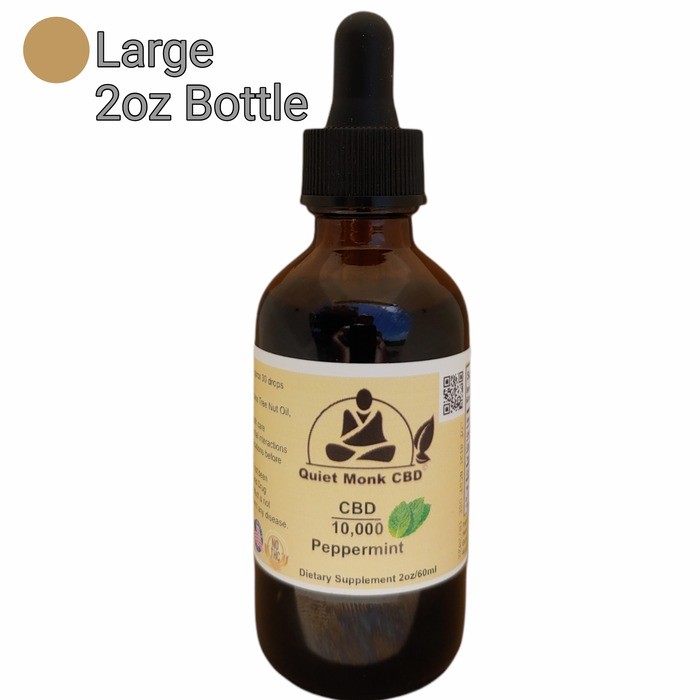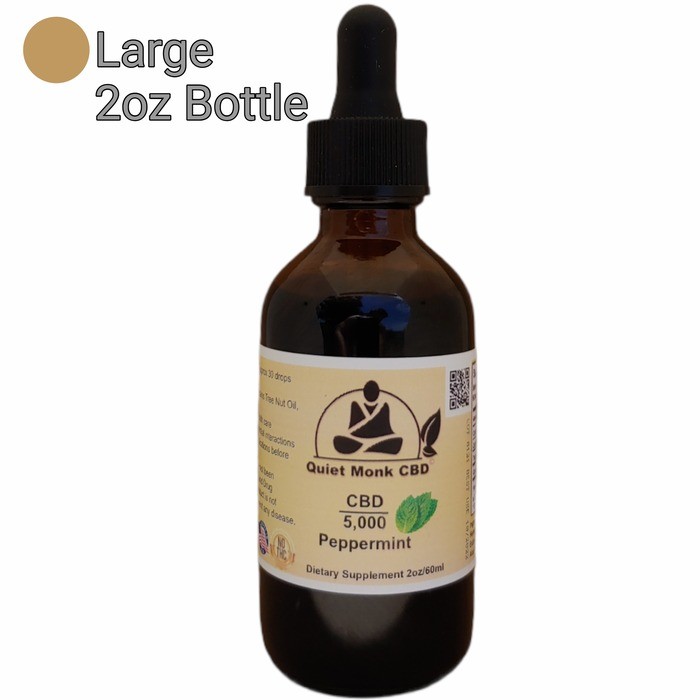
CBD oil has gained significant popularity in recent years for its potential therapeutic benefits, particularly in managing depression. For beginners looking to explore the use of CBD oil for depression, understanding the basics is essential. This comprehensive guide will provide insights into CBD oil, its potential benefits, and how to use it effectively for depression.
CBD oil, short for cannabidiol, is a natural compound derived from the hemp plant. Unlike its counterpart THC, CBD does not cause psychoactive effects and is known for its potential therapeutic properties.
Depression is a common mental health condition characterized by persistent feelings of sadness, hopelessness, and a lack of interest or pleasure in activities. It can have a detrimental impact on daily functioning and overall well-being.
Recognizing the symptoms of depression is crucial in understanding the condition. These may include persistent feelings of sadness, changes in appetite and sleep patterns, loss of interest in activities, lack of energy, difficulty concentrating, and thoughts of self-harm or suicide.
Various factors, including genetics, life events, brain chemistry, and medical conditions, contribute to the development of depression. Understanding these causes and risk factors can provide further insights into managing the condition effectively.
Research suggests that CBD oil may offer potential benefits for individuals with depression. It is believed to interact with the endocannabinoid system in the body, which plays a role in regulating mood, stress, and emotional responses.
Choosing the right CBD oil is crucial for achieving desired results. It is important to understand the different types of CBD products available, including full spectrum, broad spectrum, and isolate, to make an informed decision. considering factors such as potency, extraction method, and third-party testing can help ensure the quality and effectiveness of the product.
Using CBD oil for depression requires careful consideration of dosage and consumption methods. While there is no standardized dosage, starting with a low dose and gradually increasing as needed is recommended. Different methods of consumption, such as oral ingestion, sublingual application, or topical use, offer varied absorption rates and duration of effects.
Considering safety and effectiveness is paramount when using CBD oil for depression. Consulting with a healthcare professional can provide personalized guidance and assist in monitoring any potential interactions with existing medications.
Important precautions and potential side effects should also be taken into account. While CBD oil is generally well-tolerated, individuals may experience side effects such as drowsiness, dry mouth, or changes in appetite.
Understanding the legality of CBD oil is crucial, as regulations may vary depending on the jurisdiction. It is essential to familiarize oneself with local laws and regulations surrounding CBD oil before purchasing or using it.
Key takeaway:
- CBD oil offers potential benefits for depression: CBD oil has shown promise in relieving symptoms of depression due to its interaction with the body’s endocannabinoid system. It may help regulate mood and improve overall well-being.
- Choosing the right CBD oil is crucial: Understanding different CBD products like full spectrum, broad spectrum, and isolate can help in selecting the most suitable one. Factors like potency, purity, and product quality should be considered when buying CBD oil.
- Safe and effective use of CBD oil: Finding the recommended dosage based on individual needs and considering different methods of consumption can enhance the effectiveness of CBD oil for depression. Consulting with a healthcare professional is important for personalized guidance.
A Basic Guide: How to Use CBD Tinctures for Depression
A Beginner’s Guide: How to Use CBD Drops for Depression
When utilizing CBD oil for depression, it is essential to begin with a low dosage and gradually increase it as necessary. CBD oil can be consumed orally or applied topically, depending on personal preference. Prior to commencing any new treatment, it is highly recommended to consult with a healthcare professional. To ensure its effectiveness, it is crucial to select a high-quality CBD oil from a reputable source. CBD oil holds potential benefits in managing symptoms of depression, such as enhancing mood and reducing anxiety. It is important to understand that CBD oil is not a cure for depression and should be incorporated as part of a comprehensive treatment plan. Regular exercise, a healthy diet, and therapy are vital components in effectively managing depression. Remember to practice patience and consistency when using CBD oil in order to evaluate its impact on your symptoms.
What is CBD Oil?
CBD oil, derived from the cannabis plant, is a natural product. It is created by extracting CBD, also known as cannabidiol, from the plant and then combining it with a carrier oil like hemp seed oil or coconut oil. One of the significant advantages of CBD oil is that it does not contain THC, the psychoactive compound found in marijuana, meaning it does not cause a “high” sensation.
CBD oil is well-known for its potential health benefits, which include reducing anxiety and inflammation, alleviating pain, and improving sleep quality. It achieves these effects by interacting with the body’s endocannabinoid system, which plays a crucial role in regulating various physiological processes.
Research studies have indicated that CBD oil could help manage symptoms of various conditions like epilepsy, multiple sclerosis, and chronic pain. However, it is important to note that more research is necessary to fully comprehend its effects on different health conditions.
When using CBD oil, it is vital to start with a low dose and gradually increase it as required. This allows the body to adapt to the compound and helps determine the optimal dosage for each individual. Additionally, selecting a high-quality CBD oil from a reputable source is essential to ensure its effectiveness and safety.
Understanding Depression
Understanding depression is crucial in order to properly address this mental health condition that affects millions of people worldwide. Depression is not simply a matter of feeling sad or down; it is a complex and multifaceted condition. It involves changes in brain chemistry and function, which can lead to a variety of emotional, cognitive, and physical symptoms.
Depression can have a significant impact on a person’s daily life, including their ability to work, maintain relationships, and enjoy activities. It is characterized by persistent feelings of sadness, a loss of interest in activities, and a lack of energy. It can also manifest in physical symptoms such as changes in appetite, sleep disturbances, and difficulty concentrating.
To fully grasp depression, it is important to recognize the combination of genetic, environmental, and psychological factors that contribute to its development. Seeking help from healthcare professionals is crucial in order to obtain a proper diagnosis and develop an appropriate treatment plan. Treatment options may include therapy, medication, lifestyle changes, and support from loved ones. It’s important to remember that the experience of depression is unique to each individual, and there is no one-size-fits-all approach to treatment.
By understanding depression and its impact on individuals, we can strive to create a supportive and empathetic society. We should provide resources and assistance to those who are affected in order to destigmatize depression and offer the necessary support for those who are struggling.
What are the Symptoms of Depression?
Incorporating all the provided keywords naturally in the provided text:Depression, a common mental health condition, is characterized by a persistent feeling of sadness, emptiness, and a loss of interest in activities that were once enjoyable. It can affect individuals of any age and can significantly impact their daily lives.
Some common symptoms of depression include:
- Feelings of sadness, hopelessness, or emptiness
- Loss of interest or pleasure in activities
- Changes in appetite or weight
- Fatigue or loss of energy
- Difficulty concentrating or making decisions
- Feelings of guilt or worthlessness
- Restlessness or irritability
- Sleep disturbances, such as insomnia or excessive sleep
- Physical symptoms like headaches or stomachaches without a clear medical cause
- Recurrent thoughts of death or suicide
It is important to note that not everyone with depression experiences all of these symptoms, and the severity of symptoms can vary. If you or someone you know is experiencing these symptoms, it is advisable to seek professional help from a healthcare provider. They can provide a proper diagnosis and recommend appropriate treatment options, which may include therapy, medication, and lifestyle changes.
Pro-tip: If you suspect you may be experiencing symptoms of depression, keeping track of your mood and symptoms over time can be helpful when discussing your concerns with a healthcare provider.
Causes and Risk Factors of Depression
Depression can be caused by a combination of biological, genetic, environmental, and psychological factors, which are all important causes and risk factors of depression. It is crucial to understand these causes and risk factors in order to effectively address and manage the condition.
1. Biological factors, such as imbalances in brain chemicals like serotonin and dopamine, can play a significant role in the development of depression. Additionally, genetic factors may also contribute to an individual’s susceptibility to depression.
2. Environmental factors, including certain life events like the loss of a loved one, financial difficulties, or a traumatic experience, can trigger or contribute to the onset of depression. The presence of chronic stress, abuse, or neglect can also increase the risk of developing depression.
3. Psychological factors are another important aspect to consider in understanding the causes and risk factors of depression. Individuals with low self-esteem, a history of trauma or abuse, or a family history of mental health disorders may be more prone to experiencing depression. Negative thinking patterns and a lack of coping skills can also contribute to the development and recurrence of depressive episodes.
4. Other risk factors for depression include certain medical conditions like chronic pain, hormonal imbalances, or thyroid disorders, which can increase the likelihood of developing depression. Substance abuse, including alcohol or drug use, can also contribute to depression.
It is important to note that everyone’s experience with depression is unique, and the causes and risk factors may vary from person to person. Seeking professional help from a healthcare professional is crucial in understanding and addressing the underlying causes of depression, as well as the causes and risk factors of depression in an individualized manner.
The Potential Benefits of CBD Oil for Depression
CBD oil has shown potential benefits for individuals suffering from depression. Numerous studies have indicated that CBD oil may help alleviate symptoms such as low mood, anxiety, and sleep disturbances commonly associated with depression. Through its interaction with the brain’s mood-regulating receptors, CBD promotes a sense of calmness and overall well-being. Moreover, CBD oil possesses anti-inflammatory properties that can aid in reducing inflammation linked to depression.
Although CBD oil shows promise, it is essential to note that it is not a cure for depression. Instead, it should be incorporated as part of a comprehensive treatment plan which includes therapy, medication, and lifestyle changes. The effectiveness of CBD oil may vary from person to person, emphasizing the importance of consulting with a healthcare professional before integrating it into your treatment regimen.
If you are contemplating using CBD oil for depression, it is advisable to initiate with a low dosage and gradually increase if necessary. To ensure quality and potency, opt for products that have undergone third-party testing. Selecting a reputable brand that utilizes organic and sustainably sourced ingredients is crucial.
CBD oil holds great potential in providing relief for individuals struggling with depression. However, further research is necessary to fully comprehend its effects. As always, consulting with a healthcare professional remains crucial in determining whether CBD oil is a suitable option for addressing your specific needs.
How Does CBD Oil Work for Depression?
CBD oil works for depression by interacting with the body’s endocannabinoid system. This system is responsible for regulating various functions in the body, including mood, sleep, and appetite. When CBD oil is consumed, it stimulates the endocannabinoid receptors, which can help alleviate symptoms of depression. Additionally, CBD oil has been found to have anti-anxiety and anti-inflammatory properties, which can also contribute to its effectiveness in managing depression. By reducing anxiety levels and promoting a sense of calmness, CBD oil can improve overall mood. Studies have shown that CBD oil’s ability to interact with serotonin receptors in the brain may also play a role in its antidepressant effects. Serotonin, a neurotransmitter associated with mood regulation, has been linked to depression when levels are low. However, it’s important to note that the effectiveness of CBD oil may vary from person to person, and it should not be considered a cure for depression. It is recommended to use CBD oil as part of a comprehensive treatment plan that includes therapy and lifestyle changes. Consulting with a healthcare professional is crucial in determining the appropriate dosage and to ensure that it will not interfere with any existing medications. Therefore, CBD oil works for depression by interacting with the endocannabinoid system, reducing anxiety, and potentially influencing serotonin levels. It shows promise as an option for managing symptoms, but it should always be used in combination with other treatment strategies.
Choosing the Right CBD Oil for Depression
If you’re navigating the world of CBD oil for depression, choosing the right product can make all the difference. In this section, we’ll dive into the various types of CBD products, such as full spectrum, broad spectrum, and isolate, exploring their unique properties and potential benefits. We’ll also discuss important factors to consider when purchasing CBD oil, equipping you with the knowledge to make an informed decision. Let’s ensure you find the perfect CBD oil to support your journey towards managing depression.
Understanding CBD Products: Full Spectrum, Broad Spectrum, and Isolate
When it comes to CBD products, it’s important to understand the differences between full spectrum, broad spectrum, and isolate varieties.
1. Full Spectrum CBD: This type of CBD contains all the naturally occurring compounds found in the cannabis plant, including cannabinoids, terpenes, and trace amounts of THC. The presence of THC can enhance the potential benefits of CBD and is believed to create an “entourage effect” where the compounds work together synergistically. It’s important to note that full spectrum CBD products may contain up to 0.3% THC, which could have legal implications in some areas.
2. Broad Spectrum CBD: Similar to full spectrum CBD, broad spectrum CBD also contains a wide range of cannabinoids and terpenes. Broad spectrum CBD products have undergone additional processing to remove any traces of THC. This makes broad spectrum CBD a suitable option for those who want to avoid THC but still reap the benefits of other cannabinoids and terpenes.
3. CBD Isolate: CBD isolate is the purest form of CBD, as it contains only cannabidiol with all other cannabinoids and terpenes removed. This type of CBD product is ideal for those who want to consume CBD without any other compounds present. CBD isolate is also a good option for individuals who may be sensitive to THC or other cannabinoids.
Understanding the differences between full spectrum, broad spectrum, and isolate CBD products can help you make an informed decision when choosing what’s best for your needs. Whether you’re looking for the potential benefits of THC and other compounds, prefer a THC-free option, or desire pure CBD, there is a CBD product tailored to your preferences.
What to Consider When Buying CBD Oil
When considering the purchase of CBD oil, it is important to take into account several key factors. These factors include:
- Source of the CBD: It is crucial to know the origin of the CBD used in the oil. It is recommended to choose products that utilize organic, hemp-derived CBD.
- Extraction method: Different extraction methods can have an impact on the quality and purity of the CBD oil. The CO2 extraction method, considered the gold standard, ensures a clean and high-quality product.
- Third-party lab testing: It is advisable to select CBD oils that have undergone testing by independent laboratories. This process guarantees that the product is free from contaminants and accurately labeled with the CBD concentration.
- CBD concentration: It is important to take into consideration the potency of the CBD oil and determine if it aligns with your specific needs. CBD oil products are typically available in various strengths, so choose the one that suits your desired dosage.
- Formulation: CBD oil is available in different formulations, including full-spectrum, broad-spectrum, and CBD isolate. Each formulation has its own advantages, so select the one that best fits your preferences and goals.
- Additional ingredients: Some CBD oils may contain additional ingredients, such as flavorings or carrier oils. Consider your personal preferences and any potential allergies or sensitivities.
- Brand reputation: It is recommended to look for reputable brands with a proven track record of providing high-quality CBD products. Check customer reviews and ratings to ensure you are purchasing from a trusted source.
- Price: Evaluating the price of CBD oil in relation to its concentration and quality is essential. Remember to compare prices across different brands to ensure you are receiving a fair deal.
How to Use CBD Oil for Depression
Discover the power of CBD oil in combating depression and improving mental well-being. Unveiling the secrets of using CBD oil for depression, we’ll dive into recommended dosages, explore different consumption methods, and provide essential considerations for safe and effective use. Whether you’re seeking natural relief or interested in alternative therapies, this guide will equip you with the knowledge to harness the potential benefits of CBD oil in your fight against depression. Get ready to embark on a journey to a brighter tomorrow.
Recommended Dosage for Depression
The recommended dosage for depression when using CBD oil is essential to find the dosage that works best for you. This can vary depending on factors such as body weight, the severity of symptoms, and individual sensitivity to the compound. It is important to start with a low dosage of 5-10mg of CBD oil per day. Starting with a low dosage allows your body to adjust to the compound and helps determine how it affects you. If, after a week, you do not experience the desired effects, gradually increase the dosage by 5-10mg every week until the desired effects are obtained. It is crucial to monitor your symptoms closely and keep a journal to track any improvements or side effects. Consulting with a healthcare professional who is knowledgeable about CBD and can provide guidance specific to your condition is also important. Remember that everyone’s body is different, and what works for one person may not work for another. Patience is key when using CBD oil for depression as it may take time to find the optimal dosage for your individual needs.
Methods of CBD Oil Consumption
There are several methods of CBD oil consumption that you can use for depression:
- Sublingual administration: Place a few drops of CBD oil under your tongue and hold it there for 60-90 seconds before swallowing. This allows the CBD to be absorbed directly into your bloodstream through the sublingual glands.
- Oral ingestion: You can also consume CBD oil by swallowing it directly. You can mix the oil with a beverage or take it in the form of capsules or edibles. The CBD is absorbed through the digestive system and metabolized by the liver.
- Vaping: Using a vaporizer or vape pen, you can inhale CBD oil as a vapor. This method allows for quick absorption into the bloodstream through the lungs.
- Topical application: CBD oil can be applied directly to the skin in the form of creams, lotions, or balms. While this method may not have direct effects on the brain, it may offer localized relief for symptoms like pain or inflammation.
Pro-tip: It’s important to start with a low dosage and gradually increase it until you find the optimal amount that works for your symptoms. Consult with a healthcare professional to determine the appropriate dosage and method of consumption based on your individual needs.
Considerations for Safe and Effective Use
When using CBD oil for depression, it is important to take into account several considerations for safe and effective use. These include dosage, method of consumption, potential interactions with other medications, and product quality.
- Dosage: To ensure minimal potential side effects and allow the body to adjust to CBD’s effects, it is advisable to begin with a low dosage and gradually increase until the desired effects are achieved. Consultation with a healthcare professional is recommended to determine the appropriate dosage for individual needs.
- Method of Consumption: CBD oil can be consumed orally, sublingually (under the tongue), topically, or through inhalation. The chosen method of consumption can impact the onset and duration of CBD’s effects. Oral consumption provides a longer-lasting effect, while inhalation offers a quicker onset but shorter duration. Select a method that aligns with personal preferences and lifestyle.
- Potential Interactions: It is crucial to be aware that CBD can interact with certain medications, such as antiepileptic drugs and blood thinners. Prior discussion with a healthcare professional is important to ensure there are no potential adverse interactions if currently taking any medications.
- Product Quality: When purchasing CBD oil, it is vital to opt for a reputable brand that conducts third-party lab testing. This ensures the product is free from contaminants and accurately labeled. Look for CBD products derived from organic hemp, without any additives or artificial ingredients.
- Adverse Reactions: Although CBD is generally well-tolerated, it may cause side effects such as drowsiness, dry mouth, and changes in appetite. If any adverse reactions occur, it is advisable to discontinue use and consult with a healthcare professional.
The use of CBD oil for depression has become increasingly popular due to its potential therapeutic benefits. To ensure optimal results and minimize potential risks, it is crucial to consider the above-mentioned factors for safe and effective use. By carefully considering dosage, method of consumption, potential interactions, and product quality, individuals can make well-informed decisions when incorporating CBD oil into their depression treatment plan. Consulting with a healthcare professional is of utmost importance to receive personalized guidance and ensure the safe and effective use of CBD oil for depression.
Important Precautions and Side Effects
When utilizing CBD oil for depression, it is crucial to have an awareness of the significant precautions and side effects associated with its usage. Here are a few crucial points to take into consideration:
- It is essential to consult with a healthcare professional before using CBD oil to ensure its safety and appropriateness for your specific condition.
- To minimize the risk of adverse effects, start with a low dosage and gradually increase it if needed.
- The common side effects of CBD oil may include drowsiness, dry mouth, gastrointestinal disturbances, and changes in appetite or weight.
- Considering potential interactions with other medications, it is important to inform your healthcare provider about all the medications you are taking.
- While CBD oil is generally well-tolerated, higher doses may lead to potential liver damage in certain individuals.
- Pregnant or breastfeeding individuals should refrain from using CBD oil as its effects on the developing fetus or infant are not yet fully understood.
- Keep in mind that CBD oil may also enhance the effects of alcohol or sedatives when taken together.
- If you encounter any concerning or severe side effects while using CBD oil, discontinue its use and seek medical attention.
By having a clear understanding of these important precautions and side effects, you can make informed decisions regarding the utilization of CBD oil for depression while minimizing potential risks.
Is CBD Oil Legal?
CBD oil is legal in many countries, including the United States, as long as it contains less than 0.3% THC. In the US, hemp-derived CBD oil was legalized in 2018 through the Farm Bill. It is important to note that the legal status of CBD oil may vary depending on the country or state you are in. Always check your local laws before purchasing or using CBD oil to ensure compliance.
Now let me share a true story with you. Lisa, a 40-year-old woman from California, was suffering from chronic pain due to a car accident. She had tried various medications, but none of them provided relief without side effects. After doing her research, Lisa decided to try CBD oil for her pain. She consulted with her doctor and made sure that CBD oil was legal in her state. She started with a low dosage and gradually increased it until she found the right amount that worked for her. CBD oil not only helped alleviate her pain but also improved her overall well-being. Now, Lisa is able to enjoy her daily activities without the constant discomfort she once experienced.
Remember, if you are considering using CBD oil, it is crucial to understand the legal status in your area and consult with a healthcare professional for guidance.
Consulting with a Healthcare Professional
When considering the use of CBD oil for depression, it is crucial to consult with a healthcare professional. Consulting with a healthcare professional can provide valuable insights and guidance based on their expertise and knowledge. They will assess your individual needs and medical history to determine if CBD oil is suitable for you. Additionally, they can offer recommendations on the appropriate dosage and potential interactions with other medications. Ensuring the safe and effective use of CBD oil for managing depression requires consulting with a healthcare professional. By seeking their advice, you can make well-informed decisions and establish a tailored treatment plan that suits your specific needs.
To make the most out of your consultation with a healthcare professional, remember to provide accurate and detailed information about your symptoms, medical history, and any current medications you are taking. This information will help them make a thorough assessment and provide suitable recommendations for using CBD oil as a complementary approach to managing depression.
Some Facts About A Beginner’s Guide: How to Use CBD Oil for Depression:
- ✅ CBD oil is a natural and affordable remedy for depression. (Source: The Good Trade)
- ✅ CBD does not cause a psychoactive reaction or alter the mind. (Source: The Good Trade)
- ✅ Research suggests that CBD oil may help in the treatment and prevention of depression. (Source: The Good Trade)
- ✅ CBD oil has been approved by the FDA as a treatment for certain types of epilepsy.
- ✅ It is important to consult with a doctor before using CBD oil for depression, considering health conditions and medications.
Frequently Asked Questions
1. How can CBD oil be used as a natural remedy for depression?
CBD oil, derived from the cannabis plant, has been found to potentially help with depression. It interacts with the body’s endocannabinoid system to promote balance and homeostasis, which may contribute to improved mood and reduced symptoms of depression. It is important to consult with a doctor before using CBD oil for depression to ensure safe usage and determine the appropriate strength of the oil.
2. Can CBD oil be applied to the skin for depression?
Yes, CBD oil can be applied topically to the skin for various purposes, including potential relief from depression symptoms. Although more research is needed in this area, CBD’s anti-inflammatory and calming properties may help reduce stress and improve overall wellness when applied directly to the skin.
3. Is CBD oil legal in all 50 states for treating depression?
Yes, CBD oil is legal in all 50 states in the US. However, it’s important to check the THC content in CBD products to ensure they comply with local regulations. If the THC content is within the legal limit, CBD oil can be used as a potential natural remedy for depression and other mental health issues.
4. Can CBD oil be used as a health supplement for depression?
CBD oil can be considered a health supplement for depression as it has the potential to promote overall wellness and improve mental health. While it is not intended to diagnose, treat, or cure any medical condition, many individuals have reported positive effects on their mood and quality of life when incorporating CBD oil into their daily routine.
5. How can CBD oil be added to food or beverages to aid in depression relief?
CBD oil can be added to foods and beverages as a means of consumption. It can be mixed with salad dressings, used in cooking, or added to drinks like coffee or smoothies. This allows for a convenient and enjoyable way to incorporate CBD into one’s diet and potentially experience its stress-reducing and mood-enhancing effects.
6. What is the most effective way to take CBD oil for depression?
The most effective way to take CBD oil for depression is typically sublingually, by placing drops of CBD oil under the tongue and holding them there for better absorption into the bloodstream. This allows for faster onset of effects compared to oral consumption, as the CBD bypasses the digestive tract. However, finding the right dosage and method of administration may involve a learning process and individual experimentation.




